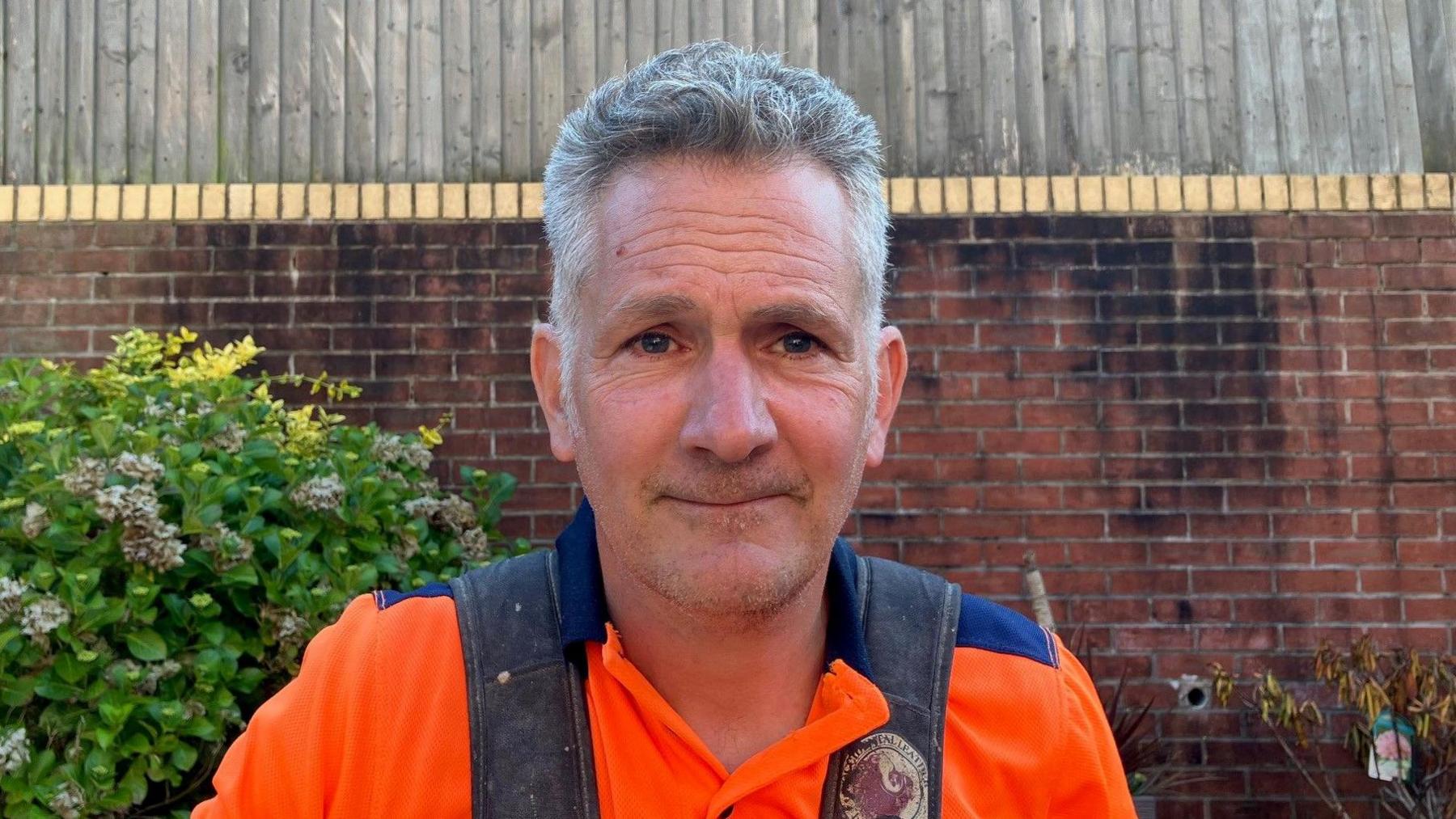Welsh parties have one eye on next Senedd election
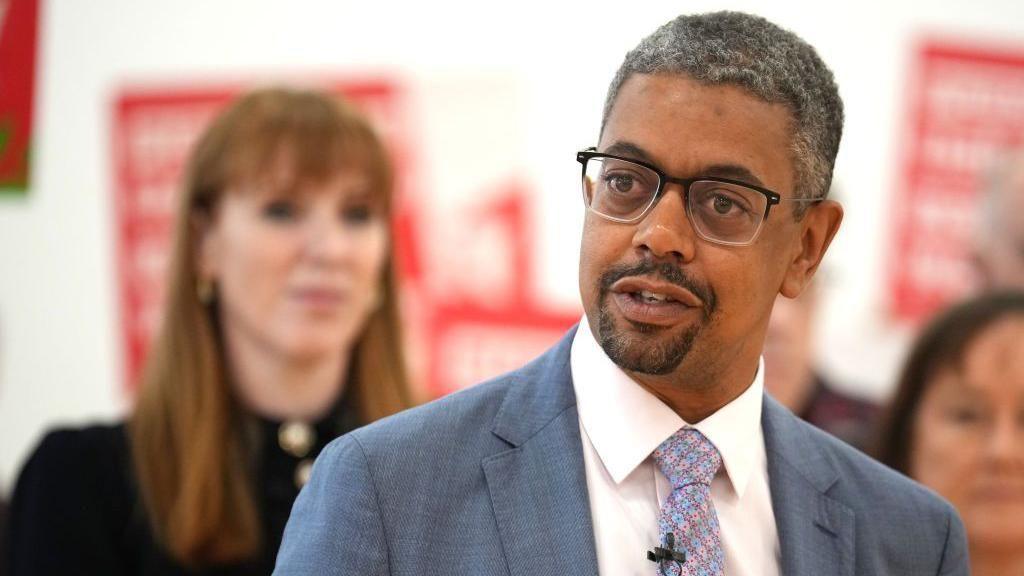
First Minister Vaughan Gething has faced questions over donations made to his leadership campaign.
- Published
The 2024 general election is a massive moment for all parties across the UK, but in Wales it is also a staging post in the far longer trek towards the next Senedd election in 2026.
Much of what the parties have been debating in the general election campaign – on health, farming and the environment – is devolved and not controlled by the UK government.
However, what the leaders say and do now in prime-time debates and doorstep discussions could ultimately shape the future of the Welsh Parliament.
Take the row over the NHS.
In the first televised debate between Rishi Sunak and Sir Keir Starmer, the only mention of Wales came when the prime minister claimed Welsh waiting lists are the "worst in Great Britain".
Over the course of the campaign, Conservatives have repeatedly pointed to the health service in Wales as a warning of what it says will happen to public services if Labour takes power in Downing Street.
What does the UK government do in Wales?
- Published13 June 2024
What are the general election issues in Wales?
- Published22 May 2024
Why Wales will lose eight MPs at the next election
- Published1 July 2024
The polls suggest this message has not necessarily resonated with voters ahead of 4 July, but it has put a spotlight on the problems faced in Wales by Labour, who know things could be different in a Senedd election.
Dr Jac Larner, a lecturer in politics at Cardiff University, said the same people who support Labour in a general election could turn against them for the Senedd equivalent.
"People actually are pretty good at making a distinction" between the two elections, he said, referencing the Welsh Election Study, external.
He said traditional Plaid Cymru supporters may vote for Labour at a Westminster election as a "tactical vote".
"In the Senedd, they don’t make that same calculation," he said.
Since the Conservatives have been in control in Westminster, Welsh Labour – which has ruled in Cardiff since the original National Assembly was set up in 1999 – has repeatedly blamed the UK government for failings at home, citing a shortage of cash being sent to Wales.
However, it is already clear that if Labour wins the general election, it does not plan to turn on the Treasury spending taps, making it difficult to see how issues like long NHS waiting lists will be resolved ahead of the 2026 Senedd vote.
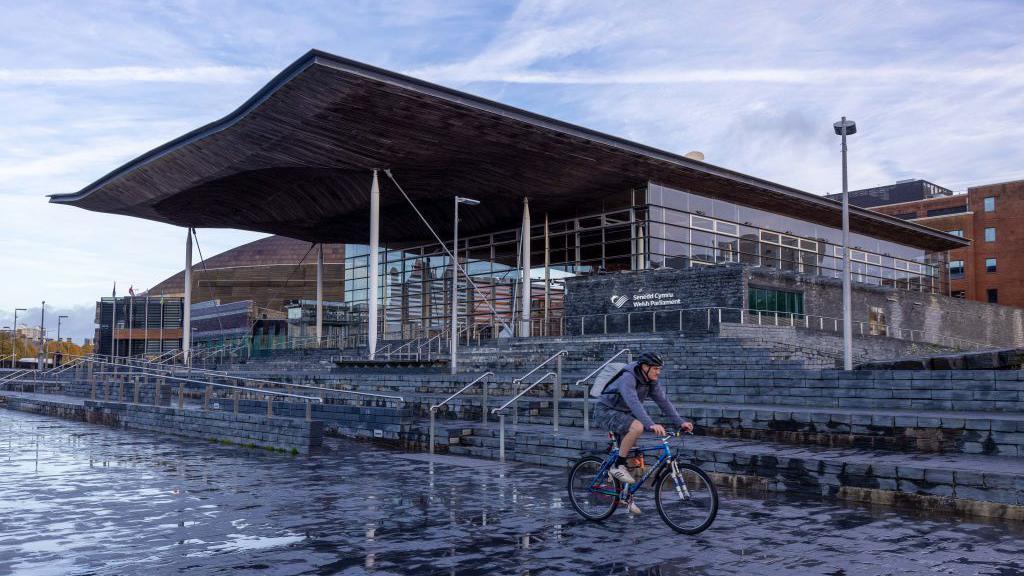
A Senedd election is due to take place in 2026
Labour's other big issue in Wales has been the future of Vaughan Gething, who won a leadership contest to replace Mark Drakeford as first minister in March.
Since then, he has faced considerable scrutiny over donations made to his leadership campaign by a company owned by a man previously convicted of environmental offences.
Earlier this month Mr Gething lost a vote of no-confidence in the Senedd which was called by the Conservatives over the donation issue.
But Mr Gething has remained at the centre of Labour's election campaign in Wales and stuck to his defence that he did nothing wrong in accepting the £200,000 donation.
He described the confidence vote as a "desperate gimmick" from the Tories during the election.
But it is an issue voters are paying attention to. A recent poll suggested, external the Labour leader was behind both his Conservative and Plaid Cymru rivals on the question of who would make the best first minister.
This is not comfortable territory for Labour, and once the general election is out of the way it will need to either unite around its Welsh leader or get on with the messy business of finding a replacement soon.

For some parties in Wales, this election campaign has been what long distance runners call a "fartlek" - a training method meant to build up long-term stamina.
It has given the politicians an intensive workout in front of the voters which could reap rewards down the track.
This is certainly the hope of Plaid Cymru, whose ambitions for 4 July have been modest, but who are trying to plant some seeds in the minds of Welsh Labour voters - aided by leader Rhun ap Iorwerth's exposure on UK-wide television debates.
"Absolutely they will be targeting the next set of elections," said Dr Larner.
"There'll be an expanded Senedd, a slight change to the electoral system, which they'll be really looking at to make really big gains there," he said.
The enlargement of the Welsh Parliament from 60 to 96 seats, chosen via a system of proportional representation rather than first-past-the-post, could also benefit Reform UK.
Dr Larner said there are signs the party is already working towards 2026, saying it was "not a coincidence" that party leader Nigel Farage launched its manifesto in Merthyr Tydfil.
"[It is] a place where the Conservative brand is very toxic – very, very unpopular," he said.
"However, there is a well of potential support for more socially conservative policies."
By targeting traditionally Labour-held ex-industrial areas that saw a strong pro-Brexit vote, Reform could find themselves with seats in the next Senedd to bring echoes of UKIP's success in 2016.
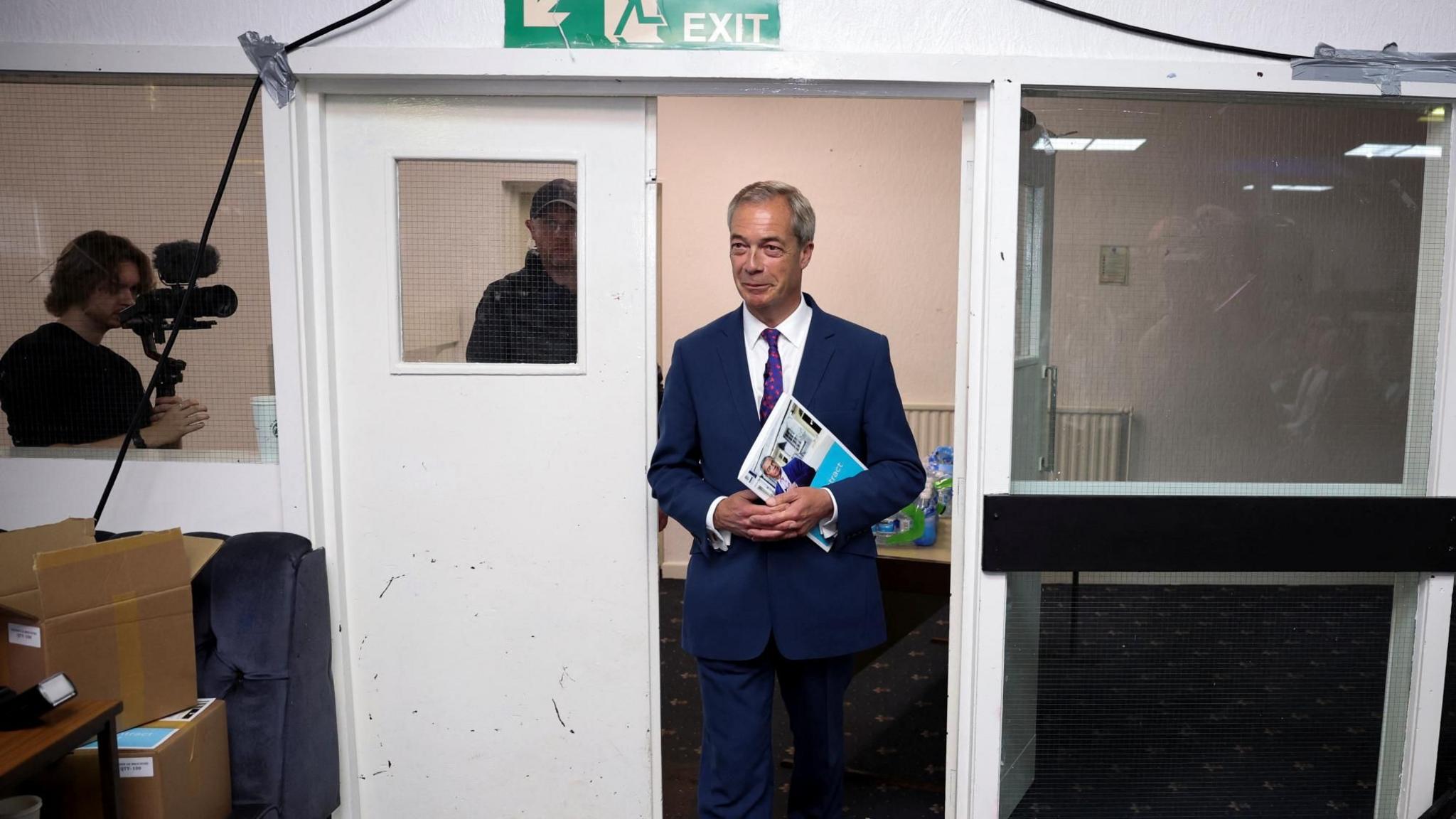
Nigel Farage launched Reform UK's manifesto in Merthyr Tydfil
For others, the last few weeks will have felt like an endless obstacle course.
For the Conservatives it started with a few missteps, like Mr Sunak asking drinkers at a Welsh pub if they were looking forward to watching the Euros – for which Wales had not qualified.
Then came the bigger hurdle of D-Day, and the fallout from the prime minister's decision to leave the commemoration in France early, for which he apologised.
Now we have the betting scandal, which started with a Welsh Conservative candidate, Craig Williams, being investigated by the Gambling Commission.
A fortnight on and that has spread to the Senedd, with Tory MS Russell George being included in the probe.
The Tories would have hoped they were managing to frame the election debate differently in Wales, focusing on Labour's record in government and devolved issues like farming and the controversial 20mph default speed limit.
Instead, the campaign here has hit the same hurdles as the rest of the UK, and the challenge is for the party not to be wiped out completely in Wales as happened in both the 1997 and 2001 general elections.
The Liberal Democrats know all about extinction events. Having lost their only Welsh MP in 2017, and with just one current Member of the Senedd (MS), the party only just managed to survive in Wales following its time in the coalition government with the Conservatives.
It has taken this long to rebuild and re-energise its largely rural vote in Wales, but any gains made in July will be seen as a springboard to future success in the Senedd.
Related topics
- Published24 June 2024
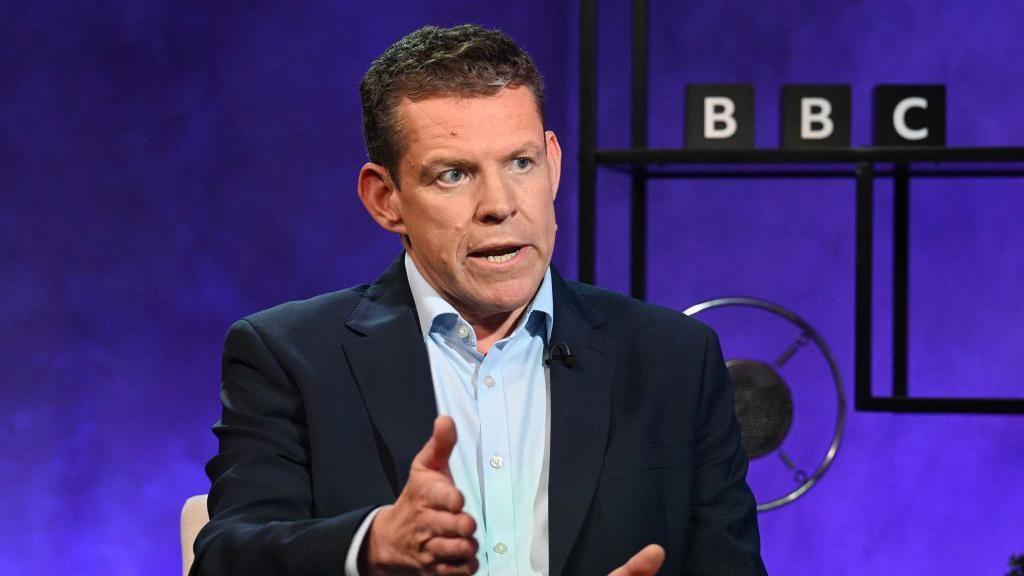
- Published20 June 2024

- Published19 June 2024
